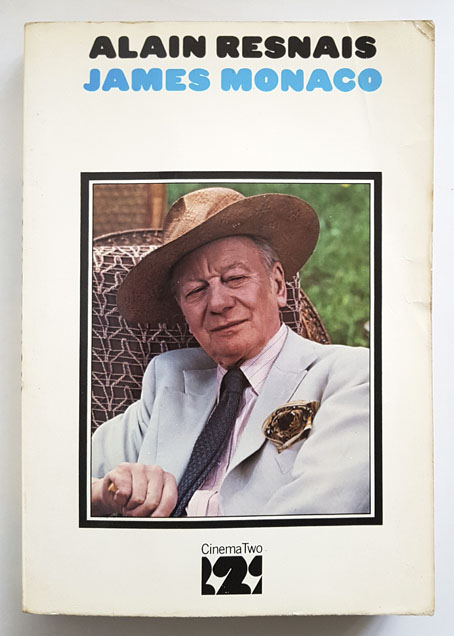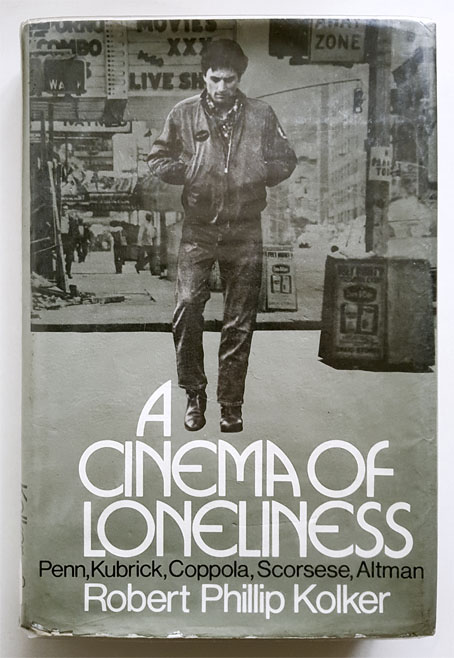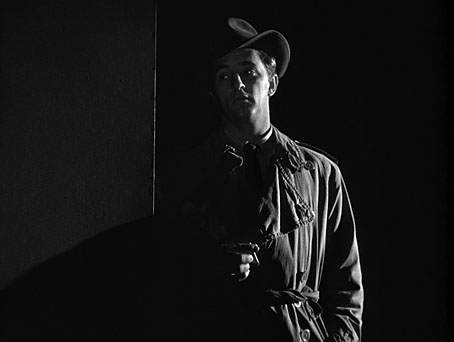
Robert Mitchum in Out of the Past (1947). Photography by Nicholas Musuraca.
“His voice was the elaborately casual voice of the tough guy in pictures. Pictures have made them all like that.” —Raymond Chandler, The Big Sleep
1: The Big Project
This is a big post about a big subject: the film noir of the 1940s and 1950s, also the “neo-noir” revival of the following decades. The project in question was my attempt to watch all the films listed in a comprehensive study of the form, Film Noir: An Encyclopedic Reference to the American Style, which was published in 1979. There are many books about film noir but this one, which I often refer to as The Big Noir Book, is hard to beat, a heavyweight guide in which editors Alain Silver and Elizabeth Ward construct a definition of the genre, chart its history, and compile indices for the key creators: actors, writers, directors and cinematographers. The core of the book is a detailed list of 300 films (see below), with production credits for each entry, a précis of each story and a short critical essay.
“Big” is an apposite term; many of these films involve big characters, big passions, big crimes and big predicaments, the latter invariably matters of life or death. The word “big” turns up in a number of noir titles, thanks no doubt to Raymond Chandler’s first Philip Marlowe novel, The Big Sleep. Howard Hawks’ adaptation of the Chandler book is one of the defining films of the genre, one that was very successful despite the plot being rendered incoherent by bowdlerisation and competing screenwriters. The studios spent the next few years offering picture-goers The Big Clock (1948), The Big Night (1951), The Big Heat (1953), The Big Combo (1955) and The Big Knife (1955). Also The Big Carnival (1951), an alternate “big” title for Ace in the Hole.
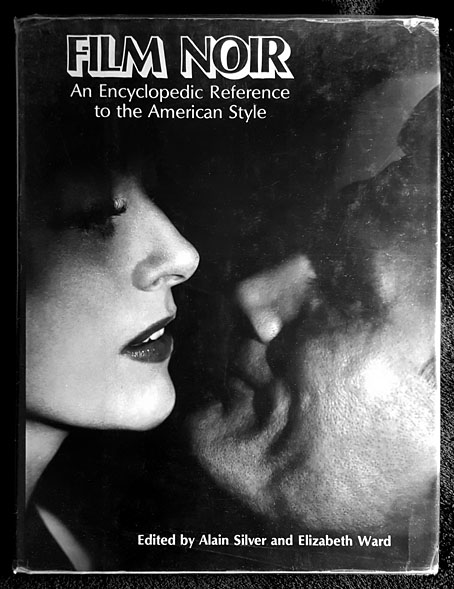
The big book. On the cover: Joan Crawford and Jack Palance in Sudden Fear (1952).
I can’t be the only person to have encountered Silver & Ward’s list then thought about trying to watch everything on it. But unless you’re an academic or a film reviewer this would have been difficult until very recently, if not impossible when many of the titles are obscure B-pictures that you wouldn’t usually find on TV. The idea first arose in the 1980s when a friend bought a copy of the noir book shortly after I’d been reading Robert P. Kolker’s Cinema of Loneliness, a substantial analysis of five American directors which, in its first edition, includes some discussion of the noir influence on the films of the 1970s. Three of the films that Kolker examines are examples of neo-noir that make the Silver & Ward list: The Long Goodbye, Taxi Driver and Night Moves. Kolker also acknowledges Stanley Kubrick’s grounding in the noir idiom. Kubrick’s Killer’s Kiss and The Killing are both on the list, while the film that followed these, Paths of Glory, features hardboiled dialogue by Jim Thompson, and a cast filled with noir actors. My growing interest in the genre happened to coincide with the arrival on British television of Channel 4, a TV station which spent its early years filling the afternoons and late evenings with re-runs of old films. Silver & Ward’s book had the effect of making me pay closer attention to films I might otherwise have ignored or only watched if there was nothing else on. The book also contextualised these films in a way that’s never required with other genres. This period was an introduction to noir as it really is, as opposed to the clichés which still surround the genre today.
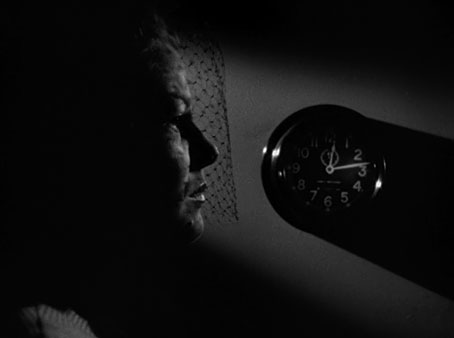
Claire Trevor in Raw Deal (1948). Photography by John Alton.
2: The Big Definition
Everyone knows the noir clichés: private eyes, duplicitous dames, lethal hoods, nightclub singers, sardonic voiceovers, light slanting through venetian blinds, the American metropolis, rain-washed nocturnal streets, big cars, big hats, trench coats, guns, cops, more cops, etc, etc.
Hollywood films of the 1940s do, of course, feature all of these things many times over, but the genre definition offered by Silver & Ward is as much about a pessimistic world-view as it is about the aesthetics of life in the American city. The “noir” quality that French critics of the 1950s identified in post-war American cinema was a visual attribute before it was anything else, a realisation that many of the recent Hollywood films were saturated with angled shadows and endless night. But the black (or, more properly, dark) character of these films is as much a set of circumstances as it is a visual style, one where the wheel of fate is often the most important element driving the story. The visual style can contribute a great deal to the storytelling and the overall mood but noir circumstance can exist, as it does in Leave Her to Heaven, in bright Technicolor sunlight miles away from any city. Fate may manifest as blind chance—mistaken identity, someone in the wrong place at the wrong time—or a deterministic inevitability that leads a protagonist to their destruction. A doom-laden finale was frequently imposed by Hollywood’s Production Code which insisted that crime can never be shown to pay, but the Code’s moral stricture is only obtrusive in the films about criminals. Many noir situations concern ordinary people whose attempts to live decent lives are thwarted by bad decisions or unfortunate circumstance. Despite Hollywood’s reputation for happy endings a negative resolution is a noir staple, as is an atmosphere of desperation, entrapment and paranoia; a Pyrrhic victory is often as good as it gets. Meanwhile, the shadow of war hangs over all the films of the 1940s. Many of the wartime pictures refer in passing to events in Europe, while the post-war films are often informed by the recent ordeals of returned veterans. There’s even a sub-class of noir involving veterans with damaged brains whose amnesias or violent mood swings lead them into trouble.
The noir stereotype of the private eye is well-founded when Silver & Ward mark the beginning of the genre with Humphrey Bogart’s appearance as Sam Spade in The Maltese Falcon. Many films about private eyes followed Bogart but not all of them are truly noir, while the genre itself is flexible enough to depart from the detective formula. Film noir doesn’t have to involve cities at all: a number of the films on Silver & Ward’s list are entirely set in small towns or remote rural areas. The genre doesn’t have to be set in the USA either: there are London noirs, South American noirs, Caribbean noirs, European noirs and Far East noirs. The films aren’t always black-and-white or filled with shadows: several of the noirs from the 1950s are in colour, as are all the ones from the 1970s.
Continue reading “The Big Noir Book, or 300 films and counting…”

